Hope! That’s the one thing that keeps us going in the midst of every adversity. Indeed, 2020, the year of the COVID-19 pandemic, has been, by far, one of the most distressing years in human history. Yet, with hope eternal, the human spirit reigns resilient and so it is with renewed vigour that we step into the new normal. So, what lessons have we learnt? What kind of future awaits some of the more prominent sectors and aspects of our lives? PT Reporter Razvin Namdarian speaks with some of our community’s industry experts as well as authorities in their respective fields, and shares their opinions with us…
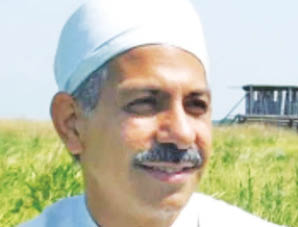 Ervad Dr. Ramiyar P. Karanjia (Religion): The Zoroastrian religion is a life enhancing, positive religion. Life is over and above everything, and we need to take every step to enhance it. It was indeed unfortunate, that over the past year, we weren’t able to visit the Agyari and attend the Muktad rituals. The Zoroastrian kasti prayers and rituals help us through protection, cleansing and strengthening. We have to protect ourselves from this invisible scourge by following all the safety protocols and maintaining our health. Among divine beings, Hom Yazad helps to fight germs, bacteria and virus. Hence, remembering Hom Yazad and seeking his aid is helpful. Let us hope that the physical, mental and spiritual lessons learnt in the past year do not go in vain and we emerge better, stronger and wiser mortals. Sincere prayers and best wishes to all to stay safe, stay and triumph over the scourge. Yazdan Panah Baad – May Ahura Mazda protect us all!
Ervad Dr. Ramiyar P. Karanjia (Religion): The Zoroastrian religion is a life enhancing, positive religion. Life is over and above everything, and we need to take every step to enhance it. It was indeed unfortunate, that over the past year, we weren’t able to visit the Agyari and attend the Muktad rituals. The Zoroastrian kasti prayers and rituals help us through protection, cleansing and strengthening. We have to protect ourselves from this invisible scourge by following all the safety protocols and maintaining our health. Among divine beings, Hom Yazad helps to fight germs, bacteria and virus. Hence, remembering Hom Yazad and seeking his aid is helpful. Let us hope that the physical, mental and spiritual lessons learnt in the past year do not go in vain and we emerge better, stronger and wiser mortals. Sincere prayers and best wishes to all to stay safe, stay and triumph over the scourge. Yazdan Panah Baad – May Ahura Mazda protect us all!
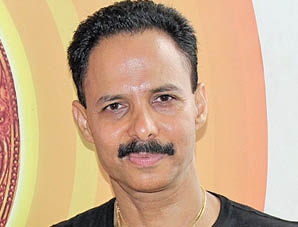 Mickey Mehta – Global Holistic Wellness Guru (Health and Fitness): I term Navroze a geographical New Year, a celebration of the Spring Equinox as the Earth renews itself. It was around Navroze last year that we went into lockdown, as the pandemic rolled over humanity like a tsunami. It’s taught us that while technology has led to development in leaps and bounds, it has also taken us backward in terms of health. The constant bombardment by radio waves – 2G, 3G and 4G is causing a disruption in Nature and our bodies. The pandemic has made us aware that we need to focus on our health. This means working out in Nature, rather than gyms. For me, Yoga is the most scientifically complete form of exercise which can recharge us, flush out the impurities from our bodies and is amazingly therapeutic. Going forward, I would recommend – be lean, don’t be mean, plug out of your machines, plug into your heart and Go Green – to get energized, get naturalised, get Mickeymised!
Mickey Mehta – Global Holistic Wellness Guru (Health and Fitness): I term Navroze a geographical New Year, a celebration of the Spring Equinox as the Earth renews itself. It was around Navroze last year that we went into lockdown, as the pandemic rolled over humanity like a tsunami. It’s taught us that while technology has led to development in leaps and bounds, it has also taken us backward in terms of health. The constant bombardment by radio waves – 2G, 3G and 4G is causing a disruption in Nature and our bodies. The pandemic has made us aware that we need to focus on our health. This means working out in Nature, rather than gyms. For me, Yoga is the most scientifically complete form of exercise which can recharge us, flush out the impurities from our bodies and is amazingly therapeutic. Going forward, I would recommend – be lean, don’t be mean, plug out of your machines, plug into your heart and Go Green – to get energized, get naturalised, get Mickeymised!
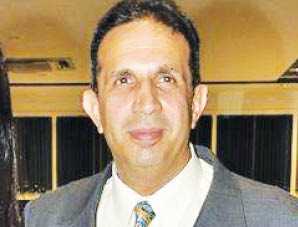 Parvez Damania, Businessman and Founder of Damania Airways (Aviation): The pandemic has been highly disruptive for the aviation sector. Restricted movements, weak tourism, curtailed income and fear psychosis are expected to compress the passenger demand by 30–60%, endangering the commercial viability of airlines. To overcome the present COVID crisis, optimal utilisation of resources, cooperation rather than competition and cost optimisation seem to be the possible ways out for sustaining commercially viable take-off on rough terrain. The most important lesson is that airlines need to focus on safety measures and hygiene so as to reassure wary travellers that planes are safe. With travel bubble arrangements, more countries reopening and the vaccine development, it’s likely that 2021 could well shape up to be the period of ‘revenge travel’. Hopefully, robust vaccination programs across the globe will result in the end of the pandemic and the airline industry will revive again.
Parvez Damania, Businessman and Founder of Damania Airways (Aviation): The pandemic has been highly disruptive for the aviation sector. Restricted movements, weak tourism, curtailed income and fear psychosis are expected to compress the passenger demand by 30–60%, endangering the commercial viability of airlines. To overcome the present COVID crisis, optimal utilisation of resources, cooperation rather than competition and cost optimisation seem to be the possible ways out for sustaining commercially viable take-off on rough terrain. The most important lesson is that airlines need to focus on safety measures and hygiene so as to reassure wary travellers that planes are safe. With travel bubble arrangements, more countries reopening and the vaccine development, it’s likely that 2021 could well shape up to be the period of ‘revenge travel’. Hopefully, robust vaccination programs across the globe will result in the end of the pandemic and the airline industry will revive again.
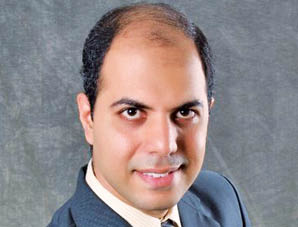 Marzee Kerawala, Founder – Nivesh India (Finance And Markets): A primary lesson learnt in the pandemic is that Risk-Protection takes precedence over WealthCreation. Medical Insurance is paramount and the pandemic has emphasised that manifold! In fact, in a city like Mumbai, I’d recommend a minimum of Rs 10 lakh medical cover. The pandemic has taught us the necessity of maintaining an Emergency Corpus – one should have enough liquid funds to sustain themselves for a minimum period of six months. People need to consider Asset Allocation and Diversification. It’s a myth that real estate offers the best appreciation – we have generated far more wealth for our investors in other avenues. Similarly, gold jewellery is not an asset class, rather we recommend that one doesn’t invest more than 5% of their funds in gold (that too – gold sovereign bonds / gold funds). The share market may seem very lucrative but if you don’t have the professional ability to understand and navigate it, it’s best to invest in Mutual Funds.
Marzee Kerawala, Founder – Nivesh India (Finance And Markets): A primary lesson learnt in the pandemic is that Risk-Protection takes precedence over WealthCreation. Medical Insurance is paramount and the pandemic has emphasised that manifold! In fact, in a city like Mumbai, I’d recommend a minimum of Rs 10 lakh medical cover. The pandemic has taught us the necessity of maintaining an Emergency Corpus – one should have enough liquid funds to sustain themselves for a minimum period of six months. People need to consider Asset Allocation and Diversification. It’s a myth that real estate offers the best appreciation – we have generated far more wealth for our investors in other avenues. Similarly, gold jewellery is not an asset class, rather we recommend that one doesn’t invest more than 5% of their funds in gold (that too – gold sovereign bonds / gold funds). The share market may seem very lucrative but if you don’t have the professional ability to understand and navigate it, it’s best to invest in Mutual Funds.
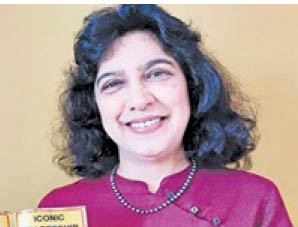 Benaifer P. Kutar, Principal, JB Petit High School, Mumbai (Education): The nation-wide lockdown caused by the pandemic disrupted education as never before, as remote instruction and ‘work from home’ became the new norm. For schools, this posed tough challenges – to effectively manage the evolving dynamics of the complex student-teacher-parent relationship, from a distance. Traditional approaches used to instruct and motivate students had to be instantly supplemented and complemented by newer, digital options. Even as the crisis has intensified, our interaction with technology, the educational landscape has been dramatically, perhaps irrevocably, altered. We transitioned successfully from the ‘classroom-to-the-cloud’, thereby providing academic continuity to students. The crisis has forced teachers to adapt, improvise, curate and modify content, to find creative and innovative ways to teach, engage and support students. There is an inherent systemic resilience to the institution of education as our schools and teachers have effectively proved throughout the pandemic.
Benaifer P. Kutar, Principal, JB Petit High School, Mumbai (Education): The nation-wide lockdown caused by the pandemic disrupted education as never before, as remote instruction and ‘work from home’ became the new norm. For schools, this posed tough challenges – to effectively manage the evolving dynamics of the complex student-teacher-parent relationship, from a distance. Traditional approaches used to instruct and motivate students had to be instantly supplemented and complemented by newer, digital options. Even as the crisis has intensified, our interaction with technology, the educational landscape has been dramatically, perhaps irrevocably, altered. We transitioned successfully from the ‘classroom-to-the-cloud’, thereby providing academic continuity to students. The crisis has forced teachers to adapt, improvise, curate and modify content, to find creative and innovative ways to teach, engage and support students. There is an inherent systemic resilience to the institution of education as our schools and teachers have effectively proved throughout the pandemic.
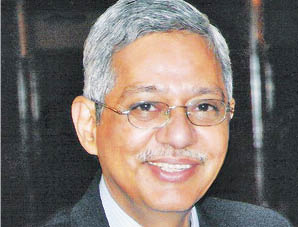 Yazdi Tantra, Global Vice President – WZCC and Founder of TantraTech (Digital Platforms): The pandemic revolutionised the very manner in which people carried out daily interactions and transactions. We woke up to the power of the internet. And those, especially seniors, who earlier hesitated about using new online technology were forced to overcome their fears regarding the security of online payment models. To them I’d say, it’s akin to putting your valuable in a bank locker – you have to trust the system as the infrastructure is sound. The pandemic also gave rise to unknown heroes like ‘Zoom’, which became the base for corporate communications and education. Whether it was entertainment, work from home, schooling, purchasing essentials, et al, every aspect of life was linked to on-line platforms. People now realise the ease and convenience of digital platforms. In the future, I foresee we will continue with a hybrid model; I don’t see people going back to their old ways.
Yazdi Tantra, Global Vice President – WZCC and Founder of TantraTech (Digital Platforms): The pandemic revolutionised the very manner in which people carried out daily interactions and transactions. We woke up to the power of the internet. And those, especially seniors, who earlier hesitated about using new online technology were forced to overcome their fears regarding the security of online payment models. To them I’d say, it’s akin to putting your valuable in a bank locker – you have to trust the system as the infrastructure is sound. The pandemic also gave rise to unknown heroes like ‘Zoom’, which became the base for corporate communications and education. Whether it was entertainment, work from home, schooling, purchasing essentials, et al, every aspect of life was linked to on-line platforms. People now realise the ease and convenience of digital platforms. In the future, I foresee we will continue with a hybrid model; I don’t see people going back to their old ways.
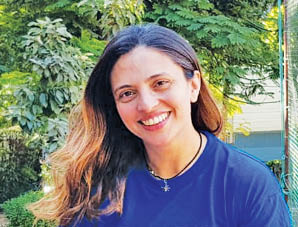 Pearl Tirandaz, Founder – Good Deeds Project (Social Consciousness and Welfare):
Pearl Tirandaz, Founder – Good Deeds Project (Social Consciousness and Welfare):
During the pandemic, we saw the community rally together to help each other. The BPP’s brilliant initiative to provide food, medical aid and sustenance, especially to elderly citizens who were living alone and unable to fend for themselves, was a huge success. It was heartening to note that within a few minutes of the BPP announcing that it sought volunteers, offers flooded in from the youth and we had Mumbai covered – from Colaba to Thane. In a show of unity and solidarity, so many community members went above and beyond their call of duty. I also believe that the pandemic made us aware and conscious about what really matters in life. We began appreciating our family, friendships and the community ties. It was in November 2020 that I finally launched the Good Deeds Project, which I’d relegated to the backburner due to the lockdown. I’ve received overwhelming positive feedback and I’m grateful that people watching the videos and somewhere, somehow they get inspired to do ‘good deeds’ and spread the love!
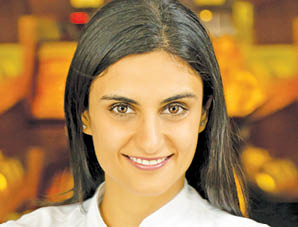 Kainaz Messman, Founder – Theobroma (Hospitality – Restaurants): The lockdown was the biggest setback we faced, the biggest challenge to our business. The three main lessons we learnt are: That health and safety of our staff and guests is paramount and not to be taken for granted; That we must take action – we didn’t wait around to see what others in the industry would do, we never stopped working, we planned and prepared for our (re)opening immediately; and That where there’s a problem, there’s an opportunity! We now have a shorter menu, a leaner staff and we’ve concentrated our efforts on revenue growth and profitability. We don’t yet know the full impact of the pandemic on our industry, this will evolve in the months ahead. Things have changed and we must adapt to whatever the future holds.
Kainaz Messman, Founder – Theobroma (Hospitality – Restaurants): The lockdown was the biggest setback we faced, the biggest challenge to our business. The three main lessons we learnt are: That health and safety of our staff and guests is paramount and not to be taken for granted; That we must take action – we didn’t wait around to see what others in the industry would do, we never stopped working, we planned and prepared for our (re)opening immediately; and That where there’s a problem, there’s an opportunity! We now have a shorter menu, a leaner staff and we’ve concentrated our efforts on revenue growth and profitability. We don’t yet know the full impact of the pandemic on our industry, this will evolve in the months ahead. Things have changed and we must adapt to whatever the future holds.
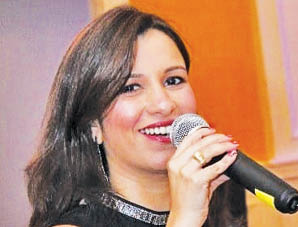 Arnaz Mirza, Professional Emcee for 15 years (Entertainment / Events): After the travel industry, the events sector was the most badly hit by the pandemic. The lockdown drove many small event planners out of business. Sustainability necessitates diversification and technology helped take events virtual. Today, we find events which were previously large scale following the hybrid model – a small live audience and a virtual broadcast. There are advantages to this as now such events have a wider reach and a global audience. However, at the same time we are at the mercy of our wi-fi connections! As an emcee, while it’s easy to hold the attention of a live audience, it can become a bit challenging, especially with time lags between responses, when dealing with a virtual audience.
Arnaz Mirza, Professional Emcee for 15 years (Entertainment / Events): After the travel industry, the events sector was the most badly hit by the pandemic. The lockdown drove many small event planners out of business. Sustainability necessitates diversification and technology helped take events virtual. Today, we find events which were previously large scale following the hybrid model – a small live audience and a virtual broadcast. There are advantages to this as now such events have a wider reach and a global audience. However, at the same time we are at the mercy of our wi-fi connections! As an emcee, while it’s easy to hold the attention of a live audience, it can become a bit challenging, especially with time lags between responses, when dealing with a virtual audience.
Of course, events like weddings have had to cope with restrictions on the number of attendees, but these are celebrations that family and friends look forward to. Corporate events have faced the biggest challenge and will take a while to bounce back. In the future, hybrid events will continue to be the way forward and they help event companies stay afloat.
- પાચનતંત્રને નોર્મલ રાખવા આટલું જરૂર કરો - 13 April2024
- ઇમોશનલ એકાઉન્ટ!! - 13 April2024
- ડબ્લયુઝેડએએસ ગ્લોબલ ફોકલોર સાથે મહિલા દિવસની ઉજવણી કરે છે - 13 April2024
